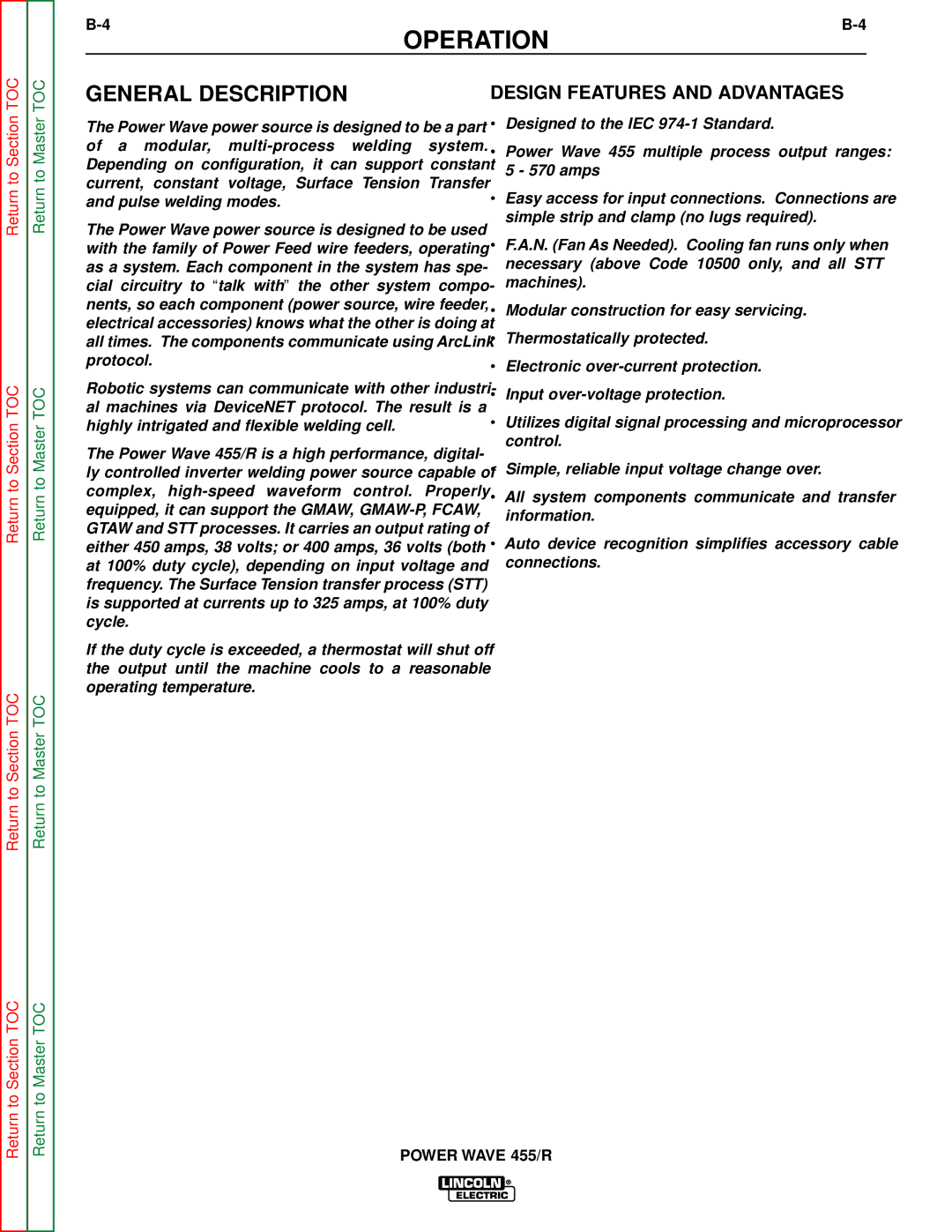
OPERATION
Return to Section TOC
Return to Section TOC
Return to Section TOC
Return to Master TOC
Return to Master TOC
Return to Master TOC
GENERAL DESCRIPTION
The Power Wave power source is designed to be a part of a modular,
The Power Wave power source is designed to be used with the family of Power Feed wire feeders, operating as a system. Each component in the system has spe- cial circuitry to “talk with” the other system compo- nents, so each component (power source, wire feeder, electrical accessories) knows what the other is doing at all times. The components communicate using ArcLink protocol.
Robotic systems can communicate with other industri- al machines via DeviceNET protocol. The result is a highly intrigated and flexible welding cell.
The Power Wave 455/R is a high performance, digital- ly controlled inverter welding power source capable of complex,
If the duty cycle is exceeded, a thermostat will shut off the output until the machine cools to a reasonable operating temperature.
DESIGN FEATURES AND ADVANTAGES
•Designed to the IEC
•Power Wave 455 multiple process output ranges: 5 - 570 amps
•Easy access for input connections. Connections are simple strip and clamp (no lugs required).
•F.A.N. (Fan As Needed). Cooling fan runs only when necessary (above Code 10500 only, and all STT machines).
•Modular construction for easy servicing.
•Thermostatically protected.
•Electronic
•Input
•Utilizes digital signal processing and microprocessor control.
•Simple, reliable input voltage change over.
•All system components communicate and transfer information.
•Auto device recognition simplifies accessory cable connections.
Return to Section TOC
Return to Master TOC
